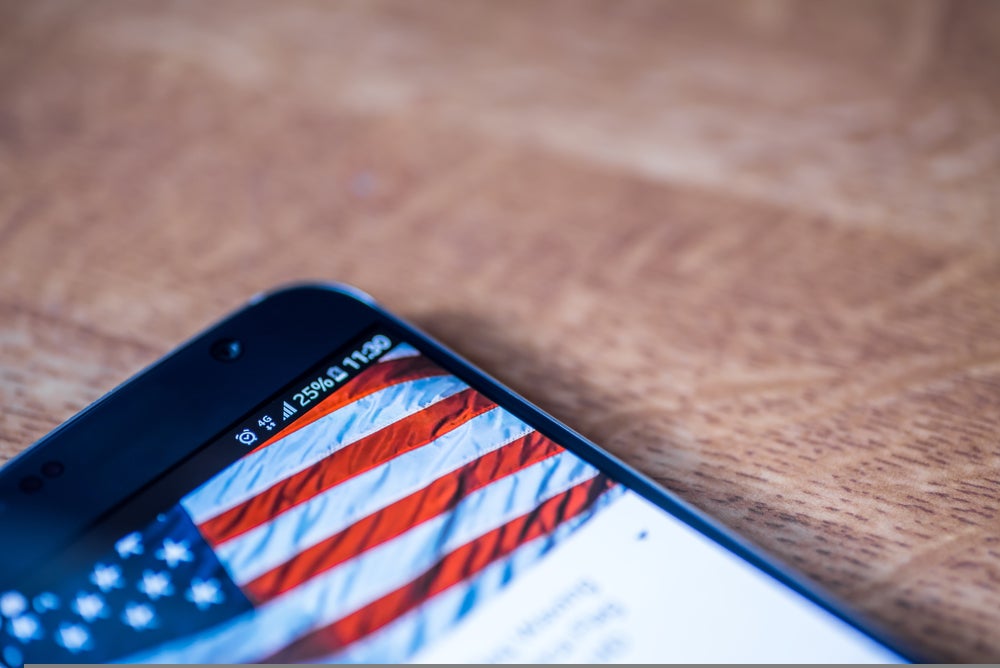
US voters have reported receiving automated robocalls telling them to stay home in the run-up to the presidential election.
Although the robocalls do not specifically mention the election, the “test call” reportedly told individuals to “stay safe and stay home”, leading some to believe they could be attempts at discouraging in-person voting. The origin of the calls is not yet clear.
Robocalls are automated phone calls that deliver pre-recorded messages to recipients. Although some robocalls are legal, such as political calls or charities asking for donations, scam robocalls or those trying to sell something without permission are illegal. In January, a law was passed in the US requiring phone companies to do more to tackle the issue and making it easier for the Federal Communications Commission to prosecute spam robocallers.
New York Attorney General Letitia James issued a statement saying that “attempts to hinder voters from exercising their right to cast their ballots are disheartening, disturbing and wrong” and that the robocalls were being investigated.
Michigan Attorney General Dana Nessel tweeted that residents of Flint, Michigan, had received calls telling them to vote tomorrow due to long lines, describing the calls as “an effort to suppress the vote”.
The FBI has said it is aware of the reports of robocalls.
How well do you really know your competitors?
Access the most comprehensive Company Profiles on the market, powered by GlobalData. Save hours of research. Gain competitive edge.

Thank you!
Your download email will arrive shortly
Not ready to buy yet? Download a free sample
We are confident about the unique quality of our Company Profiles. However, we want you to make the most beneficial decision for your business, so we offer a free sample that you can download by submitting the below form
By GlobalDataAccording to spam call blocking app YouMail, the calls have been going on for several months, with an estimated 10m calls made to households across the US in October.
In a blogpost, the company said the “weird” calls were unusual in that they do not have a call to action, suggesting that whoever is behind the calls is not using them to scam users for monetary gain, but that the “right robocall message done by the wrong people could cause significant havoc”.
According to research by Hiya, an app which can detect and identify fraudulent and spam calls in real time, spam calls grew to 54.6 billion in the US in 2019, up 108% compared with the previous year.
Election robocalls: “It is unclear what specifically the interference would achieve”
Alex Algard, founder and CEO of Hiya told Verdict that the motivation behind the call has not yet become clear:
“Contrary to some reports, we have seen no significant increase in the occurrence of the call in the last few days before the Election. The robocall message itself is generic, and it is unclear whether it refers to the election, staying safe from coronavirus, or something else.
“What is unusual in this robocall is that there is no clear commercial motivation for it. Whether robocalls are placed by legitimate businesses or fraudsters, virtually all robocall campaigns exhibit a clear commercial intent.”
He explained that it is difficult to establish the extent to which the robocall has impacted the election, if at all.
“If the robocall message was intended to interfere with the election, then it is unclear what specifically the interference would achieve. If the intention was to persuade people to use early mail-in voting, then we would have expected the calls to subside from a peak in the first week of October, as the election got closer.
“However, the robocalls continued at a steady pace up to Election Day. Consequently, there has been an assumption that the calls were intended to spook voters from casting their ballots in person.
“With the election result still to be decided, we at Hiya are not convinced that this ‘stay home’ robocall was intended to influence American voters.”
Read More: Twitter hack was “probably” the result of a vishing attack.







